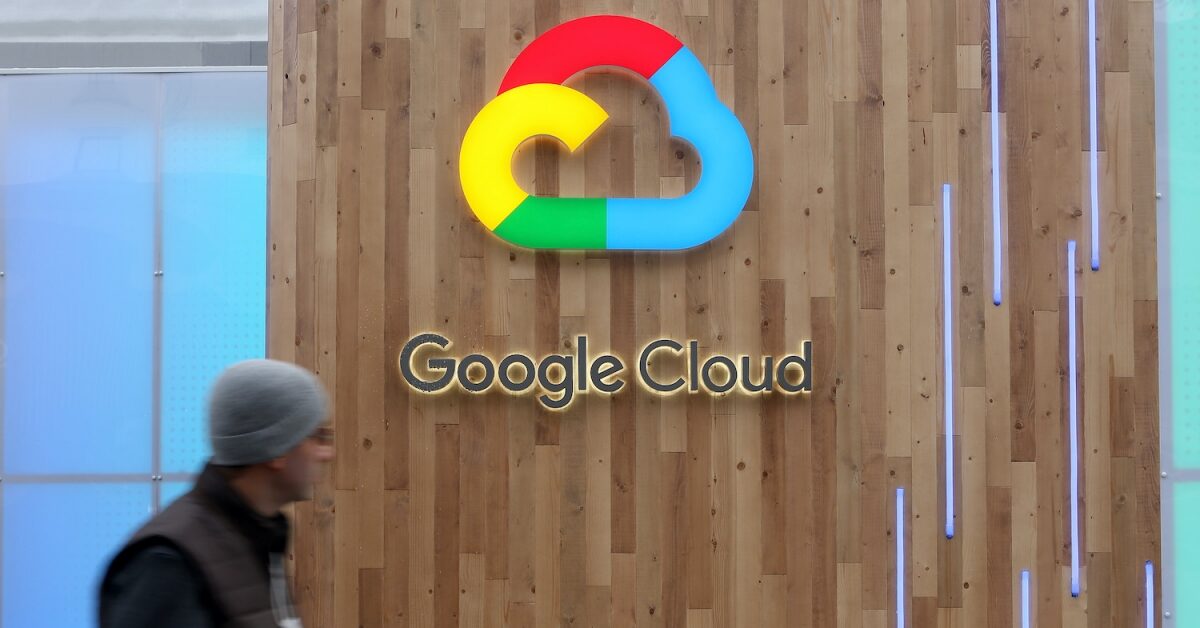
Google Cloud is not getting into EOS for the tokens.
“Google Cloud is not getting into crypto mining. This is really an infrastructure play for us,” Google Cloud Developer Advocate Allen Day told CoinDesk via a spokesperson.
On Tuesday, Block.one, the company that made the EOSIO software that runs the EOS blockchain, announced that Google Cloud had begun preparations to list itself as a candidate to serve as a block producer – one of the 21 nodes chosen by the EOS community to serve effectively the same role as miners on Bitcoin or Ethereum. EOS, however, allows for much faster transactions than either of the two largest blockchains but has been dogged by governance issues.
In Tuesday’s release, Day confirmed Google Cloud’s intention to declare its candidacy, adding, “We are committed to ensuring that the information on public blockchains are securely stored, reliably available and can be accessed in meaningful ways.”
In an email to CoinDesk, Day said the partnership comes in the same spirit as the company’s February announcement of a partnership with Hedera Hashgraph. Google Cloud also recently became a network validator for Theta Labs, a video content relayer.
When asked if the startup that ran a $4 billion initial coin offering had paid the cloud giant for expressing interest in validating the EOS blockchain, Block.one declined to comment further, redirecting CoinDesk to Tuesday’s announcement.
As for Google, Day said, “We’re broadly interested in open-source protocols and distributed ledger technologies, which is why we’re joining the EOS community,” adding:
“There isn’t a revenue model for Google Cloud in connection with participating in open-source protocols. Of course, various protocols provide rewards to incentivize node operators to secure network services, but we don’t intend to claim those rewards at this time.”
Day explained that as more companies show interest in participating in this kind of technology, Google Cloud believes it can learn how to better support customers who wish to run validation nodes on projects such as EOS.
“We’re also providing cloud infrastructure to Block.One, helping them host their own development efforts, so that obviously provides revenue to us as well,” Day wrote.
The Mountain View tech giant did not specifically say whether it would attain network tokens to stake in support of its own candidacy.
“There is always a bit of a learning curve to participating on these protocols. We can’t comment on our internal strategy or whether we will support other block producer candidates, but we will be working to support our own candidacy as a block producer,” Day wrote.
Block producers
To support block producer candidacies, each holder of EOS stakes their tokens and then casts their votes in a continuous election for their chosen validators. They can vote for up to 30 block producer candidates and change their votes at basically any time. The top 21 candidates with the most tokens staked in their favor have responsibility for validating transactions and share in the token inflation from EOS.
As of this writing, the least-supported block producer has more than 273 million eos (EOS) staked in their favor, or roughly $728 million worth of assets, according to EOS Network Monitor.
Since launching, EOS Block Producers have been more and more likely to share block rewards with those who stake to support their candidacy, which Vitalik Buterin famously foresaw prior to the mainnet launch.
Block.one is one of the largest token holders and it began voting for block producers sometime around late May. At that time, the company controlled a little less than 10% of all EOS, making its support quite powerful for any block producer.
Larimer speaks
In an interview with Naomi Brockwell on her YouTube channel Tuesday, Block.one co-founder and EOSIO architect Dan Larimer said that Google’s participation should allay some of the persistent fears surrounding the world’s 14th-largest blockchain by market capitalization.
He said that if Google Cloud’s node is elected into a block producer role, that could “represent a major shift in the decentralization of EOS.”
Larimer went on to speculate that Google’s participation might lead other companies to follow its lead. If Google has a good experience, he said:
“Other big companies will want to get involved. Then that has the potential to really transform the image of EOS. Instead of being perceived as a group of Chinese of questionable quality, if we can get big tech companies to take the slots of block producers, now it’s decentralized among a lot of companies with a lot of reputation.”
EOS token price went from $2.50 to $2.88 following the news yesterday, settling back down to around $2.66 as of this writing.
Day declined to indicate a timeline for declaring Google Cloud’s block producer candidacy, writing, “We hope to do so soon.”
Source